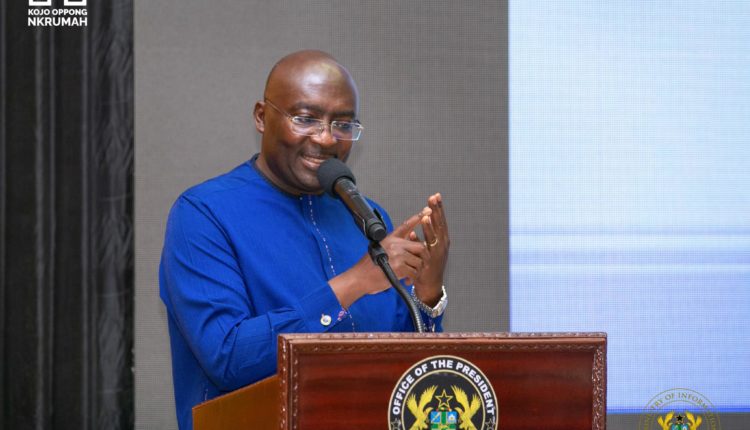Vice President Dr Mahamudu Bawumia has stated that the country will save $4.8 billion annually from the ‘Gold for Oil’ policy.
According to him, the most important aspect of the policy is aimed at stabilizing the price of fuel products, as well as reduces pressure on Ghana’s foreign exchange.
Speaking at the commissioning of the new Head Office of the Bulk Oil Storage and Transportation Company Limited (BOST), Dr. Mahamudu Bawumia said the policy is on course to achieve its overall objective.
“The most important aspect of the Gold for oil policy is the savings in foreign exchange that the Bank of Ghana will make as a result of the lower demand for forex to import oil. That savings is huge.
“This policy will reduce our need for forex by about USD4.8 billion annually and result in significant savings on the prices at the pump. The savings in foreign exchange when we do this will be an annual savings of $4.8 billion every year and that means the oil importing companies will not be going to the Bank of Ghana looking for $4.8 billion to buy oil”, he said.
He also noted that currently, 50 to 60 per cent of the country’s oil import was from the “Gold for Ol programme and expected to hit 100 per cent by the end of 2023, adding that “Ghanaians should look forward to more of these innovations as we bring the economy back to life.”
The Vice President further indicated that, consumers of petroleum products should expect a further decrease in the prices of fuel at the pumps as a result of the implementation of the Policy.
“I am happy to note that the policy is the first of its kind in Ghana since independence to address the balance of payment crisis that we face.”
”In my humble opinion, it is the most important macro-economic policy intervention to deal with the exchange rate depreciation, fuel price, and food price issues that we have had. We have not only seen a decline in prices of fuel from GH¢23.00 per litre to around GH¢12, but we have also seen stability in the exchange rate.”
He also reiterated government’s efforts at addressing the dwindling foreign currency reserves and increasing living costs adding that the policy is the most important macroeconomic policy intervention to deal with exchange rate issues and fuel price problems.
“As a result of the policy, we have not only seen a decline in the price from ¢23 per liter to around ¢12 per liter.We have also seen stability in the exchange rate as we predicted. I say all thanks should go to the Ministry of Energy, to BOST, to NPA, the Bank of Ghana, the Ministry of Lands and Natural Resources and the PMMC who rose up to the occasion when we faced those crises of rapidly depreciating currency along with rapidly increasing fuel, transportation, and food prices.”
The Gold for oil policy which was announced by the government to help reduce the pressure on the cedi and bring in cheaper fuel has so far seen about 100,000 metric tons of fuel been brought into country under the policy.


Comments are closed.